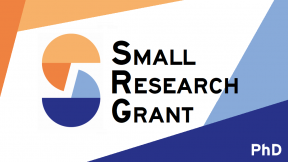Trade and logistics costs in developing countries tend to be exorbitantly high (WTO, 2004; Atkin and Donaldson, 2015). This affects aggregate productivity by preventing gains from trade across regions from being realised. Access to input and output markets is limited and firms are forced to keep their supply chains local. In India, prior to 2017, a survey funded by the World Bank found that roughly 20 percent of commercial transit time was spent at state borders verifying documents. In a related 2017 World Bank report, the authors write that “exporters from manufacturing hubs like Tirupur and Coimbatore in Tamil Nadu report diverting their shipments by several hundred kilometres just to avoid the Tamil Nadu-Kerala border crossing.” The Indian government introduced a large VAT reform in 2017 that harmonised tax systems across the country. Anecdotal evidence suggests that this led to substantial reduction in waiting times and delays at state borders. This project uses that policy experiment to quantify how trade barriers like these deter interregional trade. Future follow-on work intends to study the impact of such barriers on organisation of supply chains.
The main data requirement is bilateral trade volumes between states (or smaller regions, such as ZIP codes), before and after the reform. The main method is the following. Consider two trade routes with similar distances, but where one crosses more state borders than the other. The difference in trade volumes between these routes measures how costly borders are. The research team measure this ‘cost’ of border crossings both before and after the reform with the difference revealing the impact of removing border frictions. To measure the impact on supply chains, they plan to construct a similar bilateral trade dataset at the firm level. This will allow measurement of whether supply chains have reorganised in response to the reduction in trade costs. Lastly, their goal is to use this experiment to inform a model of firm location choice and trade to quantify the aggregate productivity gains arising from the increased gains from regional trade.
This research directly informs on the impact of removing, or cost of erecting, interregional non-tariff barriers at a large scale. These barriers need not be within-country. The research can inform the impact of creating harmonised markets between countries (as envisioned in the African Continental Free Trade Area, or implemented in the European Union). Because this project measures the cost of unpredictable but lengthy delays in trade routes, it also speaks to the value of developing transportation infrastructure. The project also provides insight into the benefits of making VAT more federal and, most directly, into the issues involved in decentralising VAT systems. The project speaks to various strands of academic literature as well. It improves our understanding of the extent and source of interregional barriers to trade, the challenges of VAT systems often ignored by theory, and how supply chains are formed in an economy with huge barriers to trade.


































































